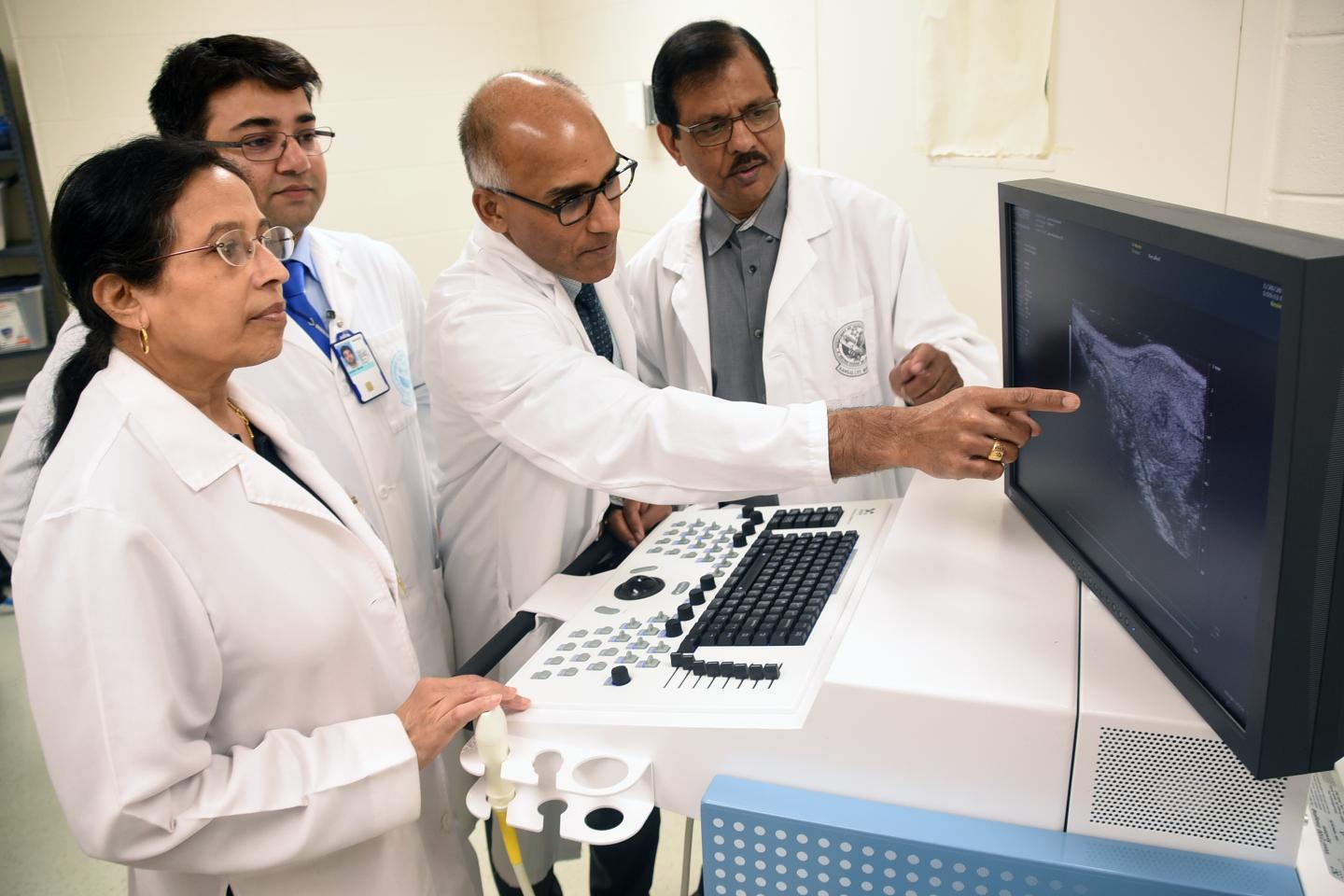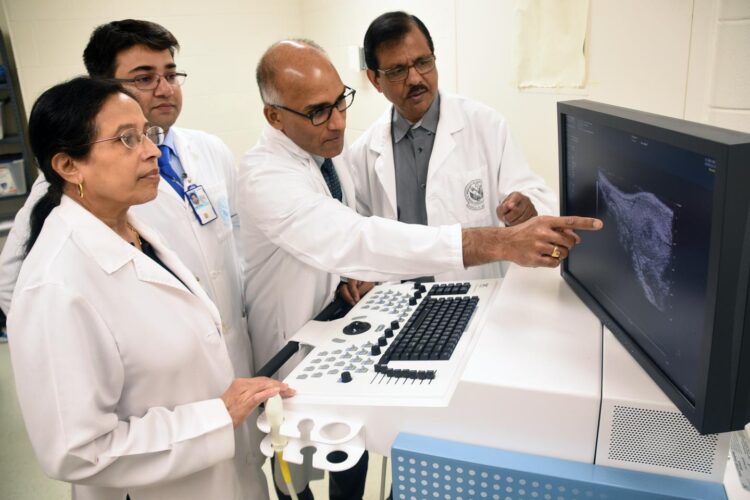Method may also work for breast, prostate, ovarian cancer

Credit: Jeff Gates
Researchers with the Kansas City Veterans Affairs Medical Center and North Dakota State University have designed a new way to deliver pancreatic cancer drugs that could make fighting the disease much easier. Encapsulating cancer drugs in nanoparticles shows potential to target tumors more effectively and avoid danger to other parts of the body.
The study results appeared in the Jan. 4, 2021, issue of the journal Molecular Pharmaceutics.
Study author Dr. Sushanta Banerjee, a researcher with the Kansas City VA and University of Kansas medical centers, explains that this technology has the potential to drastically improve Veterans’ cancer care. “Veteran health care will benefit immensely from such therapeutic models, as they are effective in delivering the drug to the tumor site without any toxic side effects [and with] minimal dosing. Once ready for patient use, this technique will reduce the number of doses required by a patient as well as effectively hinder the progression of the tumor.”
Pancreatic ductal adenocarcinoma is the most aggressive form of pancreatic cancer. It is one of the leading causes of death from cancer worldwide. Patients with this form of cancer have a five-year survival rate of about 8%. Around 7% of all cancer deaths in the United States come from pancreatic ductal adenocarcinoma.
The medication gemcitabine is the current standard of care for treating this cancer. However, gemcitabine offers only a modest improvement to patients’ chances of survival. Gemcitabine degrades quickly within the body, limiting its effectiveness. Pancreatic cancer tumors also often develop resistance to the drug.
A more effective treatment for this type of cancer, called an extracellular receptor kinase inhibitor (ERKi), has been developed. Genetic research has shown that a specific gene mutation is one of the main drivers of pancreatic tumor growth. The enzyme ERK interacts with this mutation, so inhibiting the enzyme can slow the cancer. Research also suggests that developed resistance to gemcitabine involves this enzyme.
Unfortunately, several problems make treating patients with ERKi difficult. The drug is toxic and can cause damage in other parts of the body. ERKi does not dissolved in water, making it difficult to prepare an effective formulation. It is also prone to breaking down in the body, limiting its effectiveness.
To combat these problems, the researchers created a new way to deliver medications to pancreatic tumors. They designed a nanoparticle delivery system to get both gemcitabine and ERKi to the pancreas where they will be most effective.
The two drugs are encased in nanoparticles made of polymers. The nanoparticles stop the drugs from breaking down and protect other areas of the body from the toxic effects.
The pH inside tumor cells is lower than the pH of the rest of the body. The nanoparticles are designed to release the drugs when they come in contact with a lower pH environment. In this way, the researchers can target the drugs specifically to cancer cells and not other areas of the body.
Using a nanoparticle vehicle to deliver the medications also allows for a higher dose to be given without needing multiple separate doses, says Banerjee.
In the study, the researchers tested their new technique on cancer cells cultured in the lab. The nanoparticle encapsulation effectively delivered the two drugs to the targeted cells. The testing showed that this drug combination can suppress cancer cell growth. Results also showed that this delivery method was “markedly” more effective than administering the drugs without the nanoparticles.
Additionally, the researchers found that adding ERKi to gemcitabine increased the body’s sensitivity to gemcitabine. The two drugs work together synergistically to fight the cancer, according to the researchers.
While more research is needed, the study shows that the drug delivery method is a promising new way to fight pancreatic cancer.
According to Banerjee, this technique could also be used to treat other types of cancer, such as breast, prostate, and ovarian cancers. The nanoparticle polymers developed by the research team can be combined with different chemotherapy drugs to target tumors in different parts of the body, he explains.
The research team is currently working on different drug combinations to treat various cancers, and is also creating new polymers to improve cancer treatment.
###
The study was supported by VA, the National Institutes of Health (COBRE Center for Diagnostic and Therapeutic Strategies in Pancreatic Cancer at North Dakota State University), the National Science Foundation (Center for Sustainable Materials Science, North Dakota State University), the University of Kansas Medical Center Lied Basic Science Grant Program, and the Grace Hortense Greenley Trust.
Media Contact
Bruce Hill
[email protected]
Original Source
https:/





